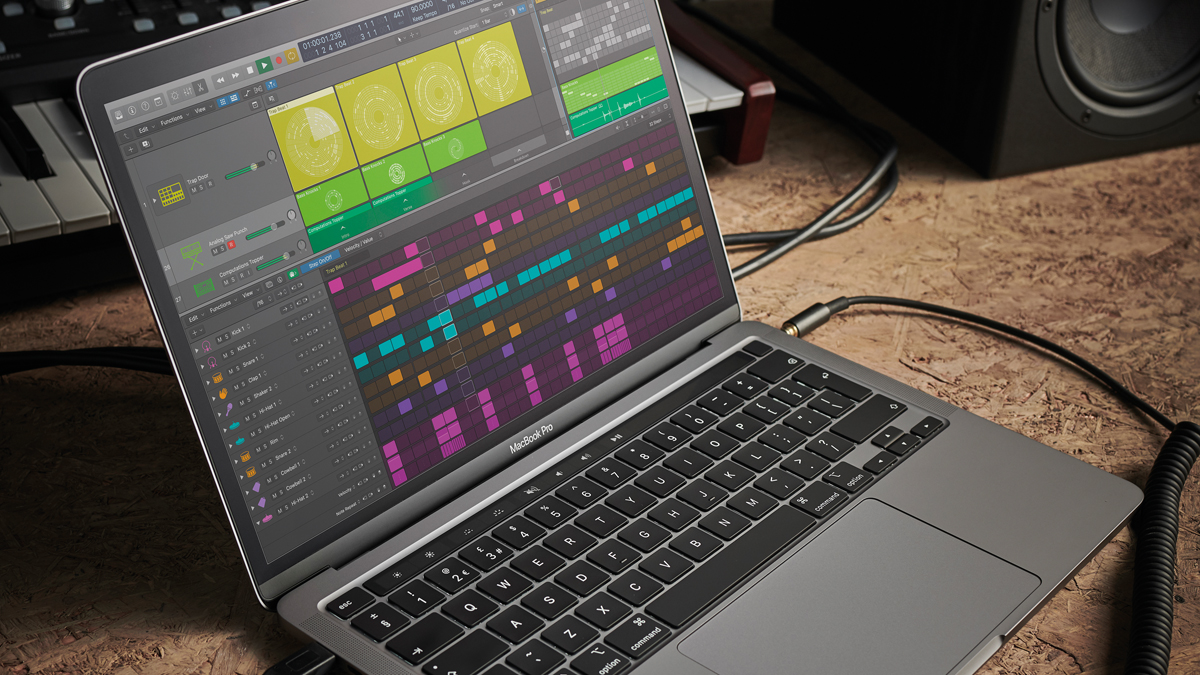

Music Production is one of the most demanding tasks for a CPU since all processing must happen in real-time. Microsoft and AMD are already working on M1 copies of their own, and the future looks bright for the ARM design. At the end of this article, we’ll take a look at the new Macs and how they perform.Īpple is the first computer manufacturer to ditch the x86 architecture, but it won’t be the only one. That immediately raised questions on the music production community as to what advantages this change could bring. In mid-2020, Apple took over the tech news by announcing they would be transitioning their entire computer line to ARM-based CPUs. It’s also more software-dependent, which further improves the operations’ speed. On the other hand, ARM takes a single clock cycle to execute uncomplicated instructions. It is also more hardware-dependent, as it relies as much as possible on the circuitry. The x86 architecture demands thorough instructions that take several clock cycles to be executed. Alternatively, x86 takes longer to process and drains more energy but focuses on quality. ARM is extremely power-efficient, focusing on quantity and speed. In plain terms, x86 is based on Complex Instruction Set Computing (CISC), while ARM is based on Reduced Instruction Set Computing (RISC). Now let’s take a quick look at some technical background: ARM vs. The Apple M1 loses by 1% to the AMD chip, even though it uses an entirely different architecture. Even though the Intel Core i7 performs better, it has fewer cores, so it didn’t fit our comparison table. That is a long dispute, considering both chips use the same x86 architecture. Here you can see that the AMD Ryzen 9 outperforms the Intel Core i9 chip by 15%. If you’re a Mac user, however, the best CPU is the Apple Silicon, which uses ARM design and outperforms all other chips on the market.ĭown here is a comparison chart borrowed from the good people at :
#M1 mac music production windows
Its single-core performance outranks any Intel chip, which makes it the ideal choice for Windows and Ubuntu users. The best CPU for music production using an x86 design is the AMD Ryzen 9 5980HS.

Which is the Best CPU for Music Production? Which Is The Best Mac For Music Production?.What Is Apple Silicon? Should I Get It For Music Production?.What Is The Best Intel CPU For Music Production?.What is The Best AMD CPU For Music Production?.What is Single-Core Performance? Why Should I Care?.What Makes A Great Music Production CPU?.Which is the Best CPU for Music Production?.The manufacturers have targeted these chips at high-end laptops, and they were all released recently: We obtained these numbers from several sources, but the primary comparison reference was. We chose to match them in specs as close as possible to generate fair results. The three chips we’ll compare in the following table are all in the same category. If you’re looking for an extensive list of the best CPUs, please refer to this post. All this to help you decide which is the best choice for your music production needs. So, we dove deep into the CPU sea to bring you the most up-to-date and valuable information. In any case, we’re fierce and determined here at Integraudio. Also recently, Apple got into the game and decided to build their System on a Chip, leaving Intel behind as the bitter Ex. Every year, Intel and AMD release a truckload of updated versions with confusing names and very little difference from the other chips in the line. Understanding CPU chips is not an easy task.


Later in the article, we’ll take a look at each manufacturer in isolation and explore their desktop chips as well. Today we’ll compare three of the best laptop chips and tell you which is the best CPU for music production in 2022.


 0 kommentar(er)
0 kommentar(er)
